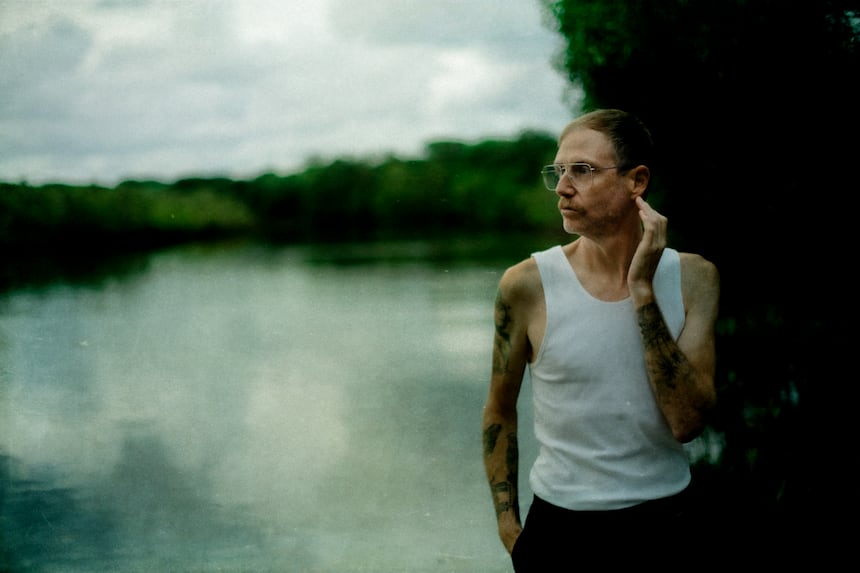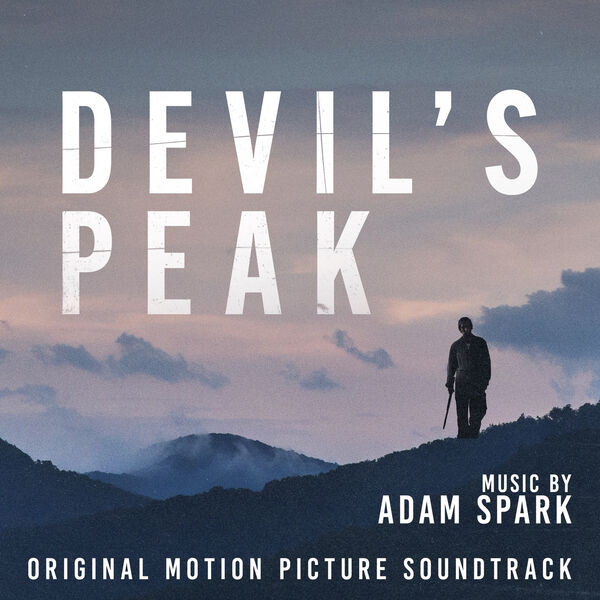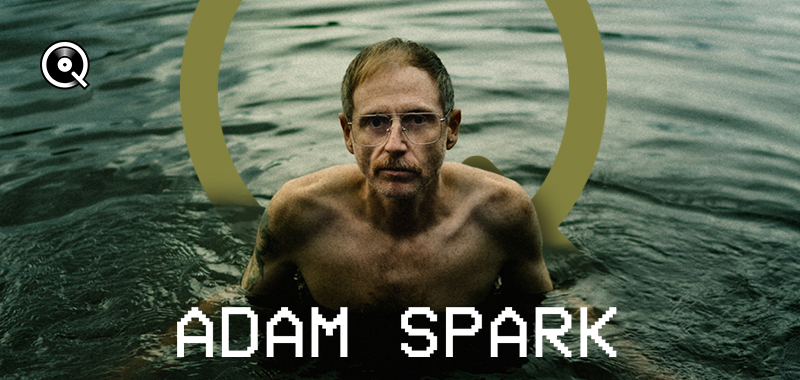Veering in a completely different direction from what Adam is known for, Snow vs Mountain serves as a contemplation on the essence of resilience. This awe-inspiring opus fuses elements of classical aesthetics with a contemporary twist, featuring captivating piano melodies, ethereal synthetic soundscapes, and the graceful embrace of a chamber orchestra. It weaves a tapestry of melodies that exude a profound sense of optimism, arising from the depths of adversity.

So this project, Snow vs Mountain is quite a large step away from what you’ve done with your band, Birds of Tokyo. What was it initially that kind of piqued your interest in neoclassical music? And where did this interest first come from?
I guess I started for a while with one of the guys in the Birds band. We, by accident, started a music company for ads and TV and things like that, just because some of our mates, our video and film video director mates, also did ads on the side. So they started coming to us going, can you just make some music for this stuff? And we did that. And that was probably 2016/17. And then through that, I just started to find out more and more about that world, I suppose. I mean, I’d always sort of loved the classical world or parts of it, and we’d always sort of worked with sort of strings and stuff like this in the band. So yeah, I just found myself more and more immersed in that world and far less in the world of guitar and band music. For me, it felt like I found much more of a sympatico with it in terms of telling stories and sharing ideas and thoughts and emotions in that sort of format than I did with rock music. I guess it’s just much freer and much more beautiful, I think.
I feel like that’s the way with neoclassical music as well. One day you just discover it and you’re like, wow, this is actually really good.
Yeah, and I think in that sort of genre as well, it takes all that history and sort of puts it through this filter of modernity and all of a sudden and it’s very cinematic. Subsequently, I spent most of last year working on a Hollywood film, doing the score for that. And so, again, I just find myself in these absolute happenstance sorts of situations built around this world of neoclassical drone-y, ambient sort of stuff.
Are there any artists that you’ve listened to that you are particularly drawn to from that sphere?
Yeah, I’ve always sort of loved all that. Anything from Steve Reich up to like Ryuichi Sakamoto and stuff, and then finding Federico Albanese, and of course Ólafur Arnalds and the work of composers like Hannah Peel who’s music is filmier or whatever, composers who just find a way to... I don’t know…. the ones that are more on the melancholy and dark side.
So how would you say working on something like this has influenced the way that you now approach your band? Are there bits and pieces you take from this that you now bring to the band setting?
Well, I think it’s, for lack of a better word, it’s much more serious, I guess, and much more considerate and thoughtful. And so, it’s funny when you switch from that back to the band world, everything can feel quite one dimensional, a bit shallow and a bit throw away and cheap. So you’re bringing in more of that consideration, especially tones and textures and stuff outside of just the music itself, just the feel of things and how rather than like, here’s a song and it says this, it’s like, well, how does the piece of music feel for a couple of minutes? What world does it take you into? And yeah, that’s certainly been a huge part that’s come over from that world now.
Kind of in a similar vein, with neoclassical music as compared to band music, one thing that’s obviously very lacking is the use of lyrics to convey emotion. What was your creative process to convey feelings without the use of lyrics?
I guess each of us as humans know what turns us on and makes us feel a certain way or what feels nice and feels good. So I have my impression of what’s a little bit sad but hopeful or something sounds like X, so you just go digging until you find that sound. And that could be notes on a piano or something, or it could start with a little drone and the way the harmonics and the synths rub together or something, you’re like, oh, okay yeah, that feels like this to me. And then you build on that little by little.
Yeah. It’s a very experimental process with neoclassical music. There are no rules, and I think that’s beautiful but also really scary, right? Because you could do anything.
Yeah. There is good and bad to it. The good is that it’s experimental and you’re finding new things about yourself and music and how you approach writing and instruments or whatever. The bad thing is that you don’t really know what you’re doing or where it’s going to end up necessarily. You hope you know… And then secondly, there’s just such a broad palette of any sounds you can put together. So having no limitations sometimes can be your own worst enemy because it could just end in a hodgepodge of all sorts of shit going on. When I did that film all last year, and I just didn’t know what I was doing. I’ve got these drone machines, so I’m just firing them up and setting them off and seeing what happens and just capturing it all and then chopping it all up. And you like to say you know what you’re doing, but really you’re just throwing shit out and hitting things, and then all of a sudden you’re like, whoa, an hour later, something comes through and you’re like, that sounds beautiful.
I asked, “Why do you do this? What do you love about this?” And she goes, “Because this didn’t exist this morning and now it does.”
I feel like that’s a perfect way to describe musicians. I think a lot, well most people, don’t actually know what they’re doing.
Well, it’s like years and years ago, I used to think, “oh I’ve got an idea and I want to execute it. It’s going to be like this.” By the time you finish that, it’s not that fun. But what is fun, I find, is that you get to discover more about yourself as you go through, and the end result tends to be a series of moments in time where you put pieces of music like this together. It’s unplanned, and so through the process of having a battle with these sounds and stuff, you and the instruments and all the stuff form a relationship. Years and years ago I was at a music writing thing in Indonesia where they had all these writers from all around the world go and write these pop songs and stuff. I was talking to this girl one day from Estonia and I always held this with me, I asked, “Why do you do this? What do you love about this?” And she goes, “Because this didn’t exist this morning and now it does.”
That’s beautiful
It was so pure. I love it. For that reason, that’s enough. It didn’t exist on Earth before.
On the album, you use orchestral strings quite a lot. I noticed, especially on the track “Kintsugi”, there’s also quite a lot of experimental string moments. Do you have any previous experience working with strings? Or what did you take away from using strings so heavily?
I’ve been working with string section for a while, my first experience was at Air Studios in London in 2010 with this lady, Audrey Riley, who I worked on this record with. She has been my friend and mentor for the last 13 years or so now. I’d have ideas and chart things out and write them in a certain way and she would be like, well that’s a mess, let me just put it in a format that makes sense to people to play. (laughs) But I’ve always loved strings, but I like them through the filter of just being a little bit woozy and more experimental using harmonics, weird techniques and textures, where the players are touching strings in non-traditional ways. London Contemporary Orchestra, those guys, they’re masters of finding parts of the instrument that people haven’t used before. You think about some of the really avant-garde stuff from many a year ago. I don’t know, there’s just something really beautiful about the imperfection and the ugliness and the gnarly parts of those string instruments, which I find is really interesting.
I think people really underestimate the possibilities you have with stringed instruments.
Well, there’s a texture as well. You’re writing something and you’re focusing on the bass or the cello or something like this, and just how you articulate or how hard you play can change things. I always thought that horse hairy, that rough sound or whatever, that to me, and I’m sure to you and other people as well, it has a feeling. It’s not just a note. It’s like there’s a gut feeling about it. And you use that when you want that feeling. And it’s really hard to get that with anything else.
I could really feel how emotional the music was when I was listening to it. You mentioned in your press statement that you wrote this at a very emotional point in your life. What was it like going through the recording process? Were there points for you where it was just a bit too much and you had to step away, or was it more of a cathartic experience for you to get these feelings out?
It’s both, actually. It took about three years to write and put together, and a lot of the early parts were tough to get through. But also when I was in London doing all the Chamber stuff for it, when you hear live it live, it’s just an overwhelming emotional sound. And so it feels good and cathartic because you’re like, yes, the vision’s coming life, and it sounds not exactly how I thought it was going to be, but more beautiful or whatever. But then I find if you give yourself over to what it’s about and why it’s happening, it can get emotional really quickly. When you’re in big sessions and these big studios with all these players and all this stuff, you’ve got to keep your shit together because I’m a crier.
In the press statement, and this is perhaps a little deep, you mentioned that with this album you almost, in a way, had to write your way into living. Was there something about this dark period that you went through that you wanted to share with listeners when they listen to this album?
I guess when I was first doing it, it was literally something that started because I was having a hard time wanting to be there each night. I’d moved out of the city, I’d moved up to the northern beaches of Sydney, and I was living by myself for the first time in years with my two dogs. And it was an incredibly dark and just a really lonely time. I’d just been divorced and all this shit was happening and I didn’t have any friends or any people around. The only way I could feel good about life was I’d start writing in the afternoons and do stuff. And all of a sudden each night I’d be going, Oh man, this sounds so beautiful. I can’t wait to work on this again tomorrow. So that became, I guess, my little sonic mantra to go to, like no matter what’s going on, this stuff really can pull you out of a pretty heavy space. Everything feels pretty wonderful when it’s sounding beautiful like that. It’s hopeful. And that’s what that whole project is about, really.
I’ve noticed that you have some pretty interesting and profound philosophies on pain and suffering and what you were going through at the time. I especially liked your reasoning behind titling the album “Snow vs Mountain”. I thought that was really powerful. Where did you develop these mantras from? Or is it something that you’ve always carried with you?
Yeah. They’ve been born over years of just a fucking hell of a life, to be honest man. We grew up in a pretty low socio-economic area in times. And so I’ve always had that through successful music and been travelling and living all over the world which culminates in really high moments and really low moments. You find ways to deal with all of these things that life throws at you. And over time, you just start to form these series of philosophies and ideas that help you through this stuff. some come from other people helping out, some come from just trial and error and finding things which work for you. And in some ways, I wish I didn’t have to have this tote bag full of processes and thoughts and little routines and stuff, but it’s part of being human.
I think if you didn’t have that tote bag of processes and things, then life would be a lot worse. Because when you think about it, life is a shit-show and you need to find ways to make living what you want it to be.
Well, that’s the thing. It’s your choice. I’ve said this for a long time. You can’t control, and I’ve learned this more and more over my life, you can’t control the things that happen. So you can’t define yourself using things that you are not in control of. So, it’s your choice to let it take over your life or go, screw this. This stuff is just going to keep happening in our life, to all of us, so you choose the path of positivity and to keep fighting and making art for yourself, and then hopefully you can share that with other people, hopefully as well.







